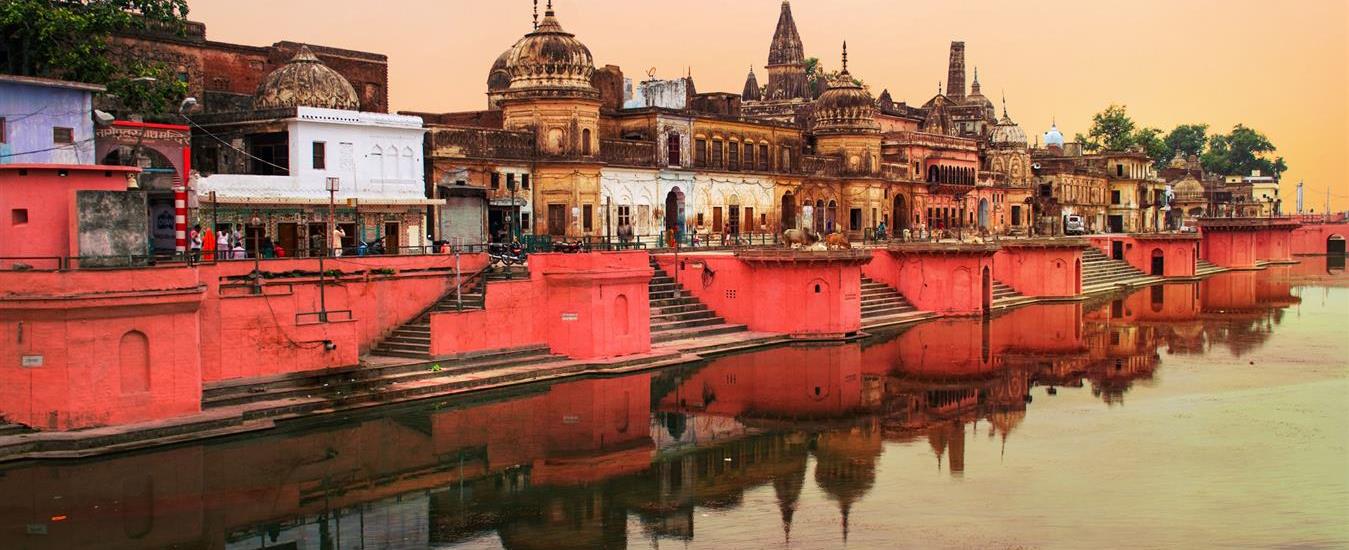Entire land goes to Hindus, Muslims to get alternative land
 NEW DELHI / AYODHYA A sigh of relief was palpable in heavily-fortified Ayodhya, Uttar Pradesh, Saturday after the Supreme Court paved the way for construction of a Ram Mandir at the disputed site in a unanimous verdict.
NEW DELHI / AYODHYA A sigh of relief was palpable in heavily-fortified Ayodhya, Uttar Pradesh, Saturday after the Supreme Court paved the way for construction of a Ram Mandir at the disputed site in a unanimous verdict.
Hindus were understandably happy with the judgment, but barring a handful, most resisted from open celebrations, lest it hurt the Muslims. The minority community seemed to be in a sombre mood, but said it would abide by the Supreme Court order.
A majority of Muslims ThePrint spoke to said they accepted the verdict, including Mohammad Iqbal Ansari, one of the litigants in the case.“It is the right verdict. We earlier said that we will respect the Supreme Court verdict. What the court did is fine and we will accept it,” Ansari told the media gathered outside his house.
The city of Ayodhya has been heavily fortified with a large number of UP policemen, CRPF and Rapid Action Force personnel. Barricades have been set up in number of places within Ayodhya and on all roads leading to the city. Police vehicles are making regular rounds and senior officers are camping in the city.
Constant messages are being flashed on the wireless sets of policemen, saying that Section 144 has been imposed and they should not allow people to gather in one spot. Policemen have been asked to stay extra cautious and alert.
Some Hindus burst crackers to celebrate, but the police cracked down on them immediately. The police also stopped a group of about five youngsters who were riding a motorcycle down the road shouting “Jai Shri Ram”.
The disputed land in Ayodhya belongs entirely to the deity Ram Lalla or infant Lord Ram, the Supreme Court said today in a landmark verdict that paves the way for a temple at the site claimed by both Hindus and Muslims for decades.
A five-judge constitution bench also ruled that a “prominent site” in the holy town in Uttar Pradesh will be allotted for a new mosque. Noting that it had been tasked with the resolution of a dispute “whose origins were as old as the idea of India itself”, the court called the razing of the 16th century Babri mosque at the disputed site by Hindu activists in 1992 unlawful.
The Ayodhya dispute has gripped the nation for decades and dominated its politics. The deity Ram Lalla, or infant Ram, one of the litigants in the case, has been given the ownership of the 2.77-acre disputed land, roughly the size of two football fields. But “the right of Ram Lalla to the disputed property is subject to the maintenance of peace and law and order and tranquility,” said five judges led by Chief Justice of India Ranjan Gogoi in a unanimous verdict.
“…on a balance of probabilities, the evidence of possessory claim of the Hindus…stands on a better footing than the evidence given by the Muslims,” said the 1,045-page judgement widely welcomed by politicians across the board, Hindu groups and also the Uttar Pradesh Sunni Central Waqf Board.
Ordering a five-acre “suitable” plot for the Sunni Waqf Board, the court said this was necessary because the court must ensure that a wrong committed must be remedied. “Tolerance and mutual co-existence nourish the secular commitment of our nation and its people,” said the judges.
The Ayodhya verdict comes after a century-old legal wrangle over the land where the 16th century Babri mosque stood before it was razed in 1992 by Hindu activists who believe it is the birthplace of Lord Ram. In the riots that followed, more than 2,000 people were killed.
The court called the mosque razing a “calculated act of destroying a place of public worship” and said the Muslims had been wrongly deprived of a mosque which had been constructed well over 450 years ago. In their verdict, the judges referred to a report by the Archeological Survey of India (ASI), which they said confirmed that a structure existed underneath the mosque but did not specify whether it was a temple.
The five-judge constitution bench heard the case for 40 days. The other members of the bench are Justices SA Bobde, DY Chandrachud, Ashok Bhushan and S Abdul Nazeer.
Prime Minister Narendra Modi said the Ayodhya judgement was like a golden chapter in the history of the nation and the Supreme court has shown strong determination. He also referred to the fall of the Berlin Wall and said: “Today is November 9. It is the date when the Berlin Wall fell. Two opposite ideologies took a new resolve by coming together.”
An Allahabad High Court verdict prescribing a three-way division of the disputed land in September 2010 failed to satisfy the Sunni Waqf Board, the Nirmohi Akhara and Ram Lalla, the parties involved in the dispute. All three moved the Supreme Court.
Meanwhile, Home Minister Amit Shah today welcomed the judgement on the Ram Janmabhoomi-Babri Masjid title suit, saying the order will prove to be a milestone and further strengthen India”s unity and integrity. In a series of tweets, Mr Shah appealed to all communities and religions to accept the decision of the top court with ease and remain committed to “one India, great India”.(Bureau Report With Agency Inputs ).

